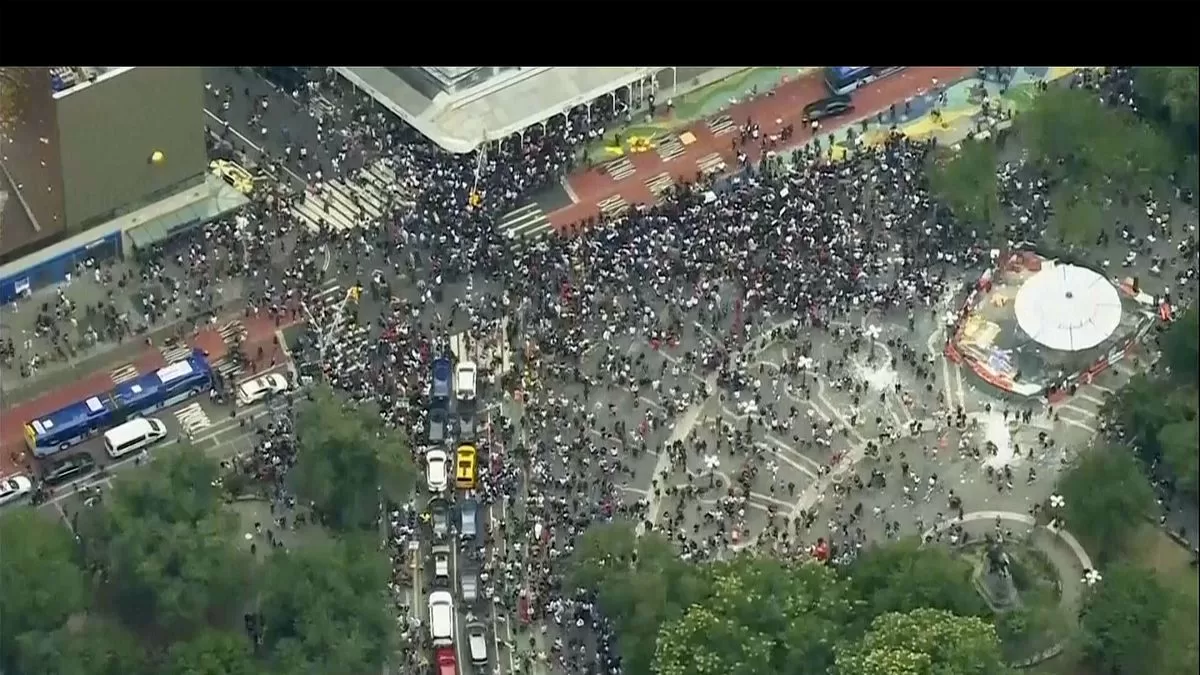He General Council of Culture and Education of the province of Buenos Aires approved this Monday a project to reform three central aspects of the Buenos Aires secondary school. The initiative was presented by the General Directorate of Culture and Education (DGCyE) and proposes modifications in the organization of teaching in two quarters, instead of three quarters; the institutionalization of Institutional Registry of Educational Trajectories (RITE)a system that conceptually qualifies the trajectory of students as “advanced” (TEA), “in progress” (TEP), or “discontinuous” (TED), and, the implementation of instances of intensification to accredit subjects instead of the traditional examination tables, a point that generates the greatest debate and is resisted by the opposition.
Within this framework, from the portfolio that leads Alberto Sileoni explained that the objective is to give continuity to what has been developed for three years, given that currently the secondary schools of Buenos Aires They are already organized in two semesters, they use the conceptual qualification system and the intensification of teaching. The reforms will be implemented from this same school year.
However, they clarified that the same academic regime will remain in force, the numerical grade to pass subjects and the promotion system with a maximum of two pending subjects.
The document that provides for the reform indicates that the instances of intensification are specific periods of the school year (December, February and March) in which a teaching and learning time is scheduled with a view to the accreditation of a subject. “They are instances of evaluation in which teachers deploy a series of pedagogical evaluation strategies, such as oral, written, practical work, etc., but in any case, the evaluation commissions are still valid for pending subjects,” they stressed from the DGCyE in dialogue with The nation.
In this way, if a third-year student takes literature, they must accredit the subject through an intensification instance in December, February or March, but if they also have a previous subject from previous cycles, for example, second-year mathematics, they will submit to a examination table for that subject. “Instances of intensification are individual. Each student works on the content not learned with the teacher who was in charge of the matter. It lasts two weeks after the end of classes or during the second half of February. It is a work of accompaniment, but of course of evaluation. The teacher defines what type of evaluative resource is going to carry out. They can be written tests, oral exams, integration work, practical work, you can also ask for work in December so that they can bring it resolved by February and then work on that. There are a variety of evaluative resources that the teacher can bring into play”said sources from the Directorate of Education and Culture of Buenos Aires.
The document also states that the school year will be organized based on annual subjects divided into two semesters. “In general, it is something highly valued by teachers, since it gives them a longer time for teaching planning,” they added.
Third, the reform establishes that students will be qualified qualitatively by averaging each quarter, in May and October, and at the end of the same through three categories: advanced educational trajectory (TEA), in the event that they achieve the corresponding learning and sustain a good pedagogical link; educational trajectory in process (TEP), in the event that they did not sufficiently achieve the corresponding learning, but that they maintained a good pedagogical link; or discontinuous educational trajectory (TED), in the event that they did not reach the corresponding learning and had little pedagogical link.
“The institutionalization of the RITE would be a valuable contribution. It was used as an evaluation strategy in the unprecedented situation of the pandemic, and contributed to the preparation of a nominal record of all students that allowed the monitoring and monitoring of their educational trajectories, at the same time which established who required periods of intensification of teaching (more school time, more teaching, more learning). We consider that it describes more exhaustively the trajectories of the students, it shows what they did not learn and why. In any case, the numerical rating it continues to be used when passing the subject at the end of the year or at the end of the school year in February,” the sources said.
The arrival of the pandemic and its consequent social isolation forced the Buenos Aires education system to make numerous changes. For example, in 2020 a semi-automatic promotion model was implemented in which everyone passed the year. In 2021, it was allowed to have up to six previous subjects to go to the next level, and last year the original system was returned in which students pass the year with up to two pending subjects. However, other changes introduced in the pandemic scenario, such as the conceptual grading system, the organization into semesters, and the intensification of teaching, still remain today.
The reform generated noise among some educational sectors because it revived an old controversy: in February, the DGCyE sought to approve a project that reformed the academic regime in force since 2011 and allowed secondary students from Buenos Aires to advance despite having owed subjects, but given the controversy, the project was withdrawn from the agenda and was not discussed in the council. The proposal also included a new ordering of the subjects, which were organized into groups of related subjects.
At that time, different education specialists agreed that, although repetition is not useful, implementing these changes without modifying the pedagogical and curricular scheme did not make sense, and they also pointed out the lack of clarity of the project.





